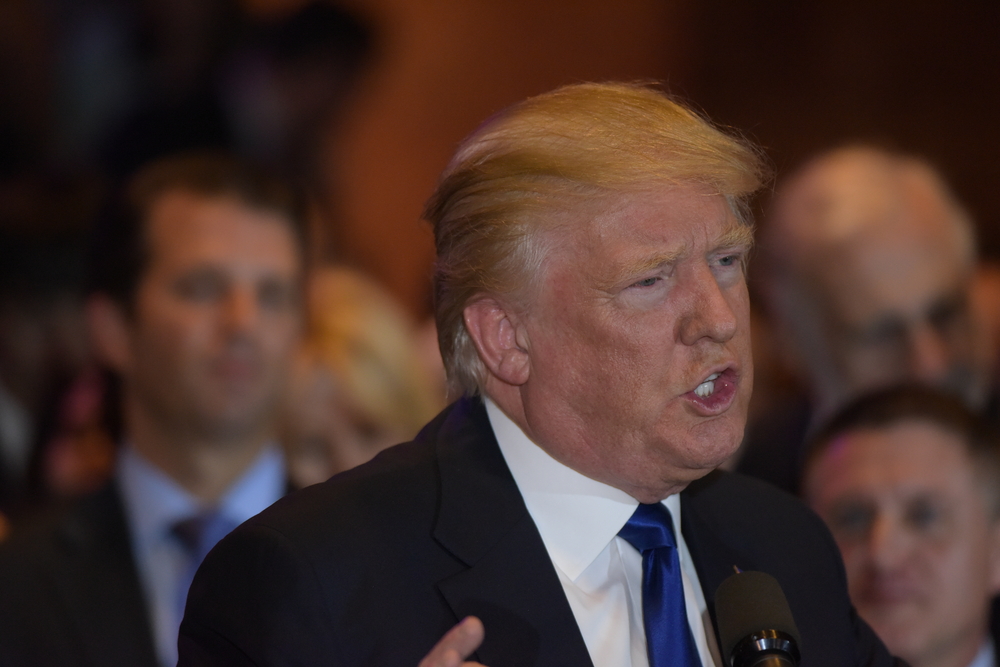BROWSE BY TOPIC
- Bad Brokers
- Compliance Concepts
- Investor Protection
- Investments - Unsuitable
- Investments - Strategies
- Investments - Private
- Features/Scandals
- Companies
- Technology/Internet
- Rules & Regulations
- Crimes
- Investments
- Bad Advisors
- Boiler Rooms
- Hirings/Transitions
- Terminations/Cost Cutting
- Regulators
- Wall Street News
- General News
- Donald Trump & Co.
- Lawsuits/Arbitrations
- Regulatory Sanctions
- Big Banks
- People
TRENDING TAGS
Stories of Interest
- Sarah ten Siethoff is New Associate Director of SEC Investment Management Rulemaking Office
- Catherine Keating Appointed CEO of BNY Mellon Wealth Management
- Credit Suisse to Pay $47Mn to Resolve DOJ Asia Probe
- SEC Chair Clayton Goes 'Hat in Hand' Before Congress on 2019 Budget Request
- SEC's Opening Remarks to the Elder Justice Coordinating Council
- Massachusetts Jury Convicts CA Attorney of Securities Fraud
- Deutsche Bank Says 3 Senior Investment Bankers to Leave Firm
- World’s Biggest Hedge Fund Reportedly ‘Bearish On Financial Assets’
- SEC Fines Constant Contact, Popular Email Marketer, for Overstating Subscriber Numbers
- SocGen Agrees to Pay $1.3 Billion to End Libya, Libor Probes
- Cryptocurrency Exchange Bitfinex Briefly Halts Trading After Cyber Attack
- SEC Names Valerie Szczepanik Senior Advisor for Digital Assets and Innovation
- SEC Modernizes Delivery of Fund Reports, Seeks Public Feedback on Improving Fund Disclosure
- NYSE Says SEC Plan to Limit Exchange Rebates Would Hurt Investors
- Deutsche Bank faces another challenge with Fed stress test
- Former JPMorgan Broker Files racial discrimination suit against company
- $3.3Mn Winning Bid for Lunch with Warren Buffett
- Julie Erhardt is SEC's New Acting Chief Risk Officer
- Chyhe Becker is SEC's New Acting Chief Economist, Acting Director of Economic and Risk Analysis Division
- Getting a Handle on Virtual Currencies - FINRA
ABOUT FINANCIALISH
We seek to provide information, insights and direction that may enable the Financial Community to effectively and efficiently operate in a regulatory risk-free environment by curating content from all over the web.
Stay Informed with the latest fanancialish news.
SUBSCRIBE FOR
NEWSLETTERS & ALERTS
The Conflicts-of-Interest President
Wall Street professionals know a thing or two about "COI" or "conflicts of interest."
When Donald Trump starts work in the Oval Office in January, he will have more potential business and financial conflicts of interest than any other president in U.S. history. How transparently and directly he addresses those conflicts will provide an early look at what kind of a leader he plans to be, and what kind of an administration he plans to run.
His Trump Organization sits atop a lucrative array of real estate holdings, hotels, golf courses and licensing operations - all of which threw off, perhaps, as much as $557 million in revenue last year. (Trump reported that figure to the Federal Election Commission earlier this year, but it’s never been publicly verified by an independent auditor. Trump could help clear up the matter by releasing his tax returns, but he’s broken with recent presidential tradition by declining to do so.)
While most federal officials working in the executive branch can’t collect outside business income while serving in the U.S. government, longstanding conflict-of-interest laws exempt the president from that stricture. So a president is free to handle private business from the White House if he or she likes.
Given that latitude, presidents have traditionally placed personal holdings such as stocks and bonds in blind trusts overseen by 3rd parties who make independent investment decisions. The logic there is that the president is free to make official decisions without worrying about how they might appear to affect his or her fortunes.
Yet, the bulk of Trump’s wealth is tied up in hard assets housed under the Trump Organization’s corporate umbrella. Those assets don’t lend themselves as easily to a blind trust as securities do. Another complication is that the Office of Government Ethics forbids family members from overseeing blind trusts for those working in the executive branch.
SOLUTION. Trump has said he wants to leave his 3 eldest children in charge of his company. That will work just fine, Trump has assured anyone who asks. And, they apparently would not do so within the stricture of a blind trust. Back in September, Trump made the following statement on this matter [though we know, all too well, that Trump has never shackled himself to obligations of past statements]:
I will sever connections and I’ll have my children and my executives run the company and I won’t discuss it with them," he told Fox News in September. “It’s just so unimportant compared to what we’re doing about making American great again.”
Not surprisingly, all of this is going to be very complicated; just another “unprecedented” item to add to the list of surprises Trump has introduced to the 2016 campaign.
That said, this and other matters - categorized as Domestic Holdings, Overseas Holdings, Banks and Bank Debt, and Litigation - will need to be resolved before Trump is sworn in as the 45th president of the United States.
In terms of last category, 'Litigation', it should be noted that there are about 75 lawsuits pending that Trump has filed or has had filed against him, including the high-profile litigation and fraud investigation involving Trump University. Trump is going to have to make clear how he intends to resolve them. As Bloomberg News columnist David Voreacos has reported, some legal experts think most of these cases will be settled. Trump’s presidency may protect him from being called as a witness in others, but it won’t grant him immunity from the suits themselves.





